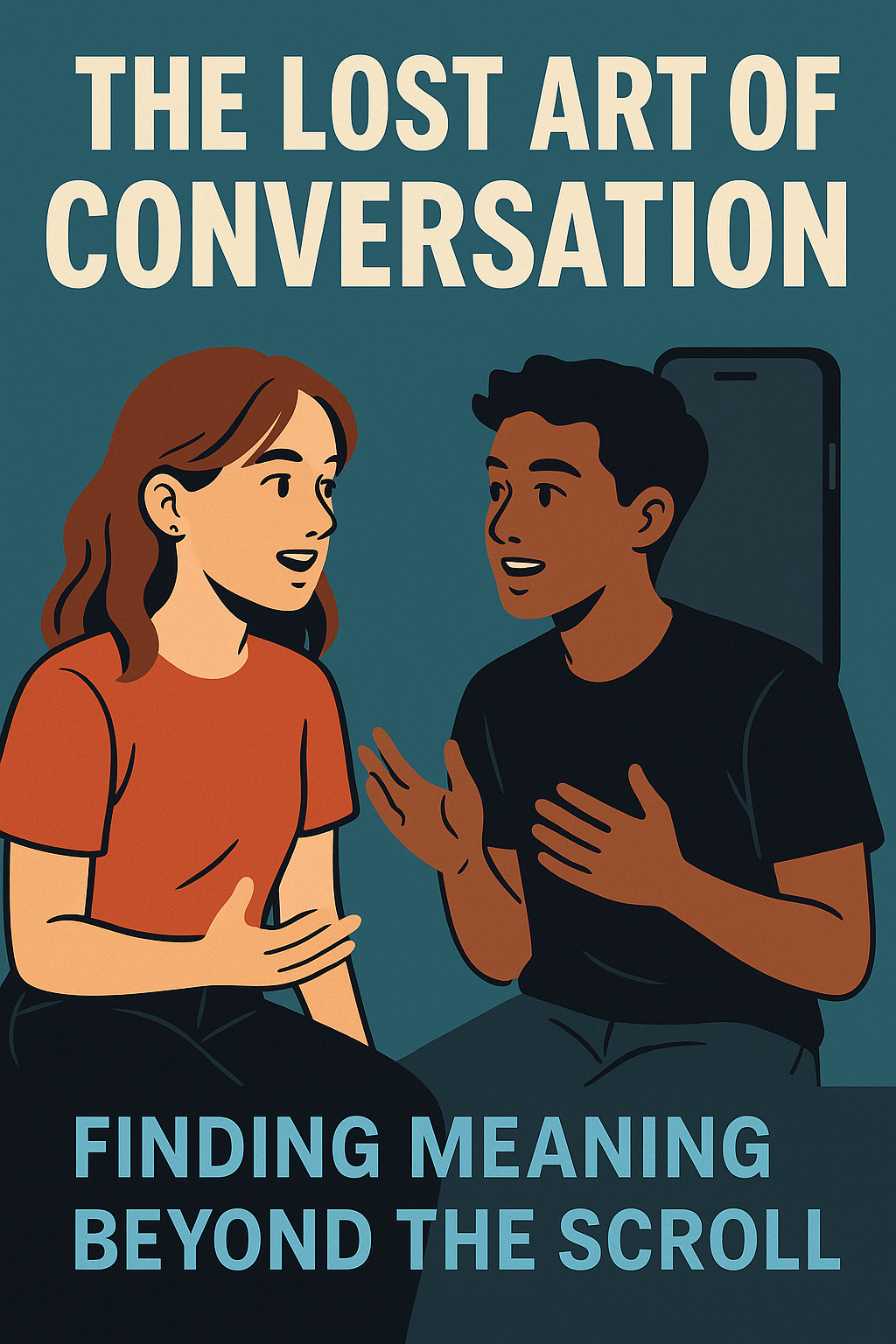The Lost Art of Conversation: Finding Meaning Beyond the Scroll

We live in the age of connection. Every thought, image, and opinion is shareable, instantly, globally, and permanently. We can FaceTime across time zones, send disappearing Snaps in seconds, and broadcast our lives to strangers on TikTok. And yet, despite all this connection, one thing keeps rising in young people’s lives: loneliness.
Real, aching, where-do-I-belong loneliness.
It’s a silence hidden beneath filters and emojis. It’s the performance of “I’m fine” in group chats and the silent unfollow of someone who never really knew us. The world hasn’t stopped talking, but somewhere along the way, we stopped conversing.
More Than Words
thinkWell believes in the art of conversation, real conversation. The kind that’s slow. The kind that might include pauses, stumbles, and moments of vulnerability. Whether it’s in coaching, counselling or hypnotherapy, our work begins with a simple question: what’s on your mind?
It’s easy to forget the power of that question. Not what do you do? or what’s your plan? or what’s wrong with you? But something gentler, human, and open-ended.
Because real conversation isn’t about information. It’s about intimacy. It’s about being seen.
Why It’s So Hard to Talk Now
For many young people, conversation has become a kind of performance. There’s pressure to be articulate, funny, “deep” but not too intense. In a world where everything can be screenshot or taken out of context, it’s understandable that many opt for silence, or sarcasm, over honesty.
Social anxiety thrives in this space. So does imposter syndrome. So does shame. And all of these are compounded by the absence of safe places to say, “I’m not okay. I don’t know who I am right now.”
The Power of Being Witnessed
At thinkWell, we don’t believe people need to be “fixed.” We believe they need to be heard. And when someone is truly witnessed, in their confusion, in their contradictions, in their unpolished truth, something shifts.
That’s why our approach blends coaching’s future-focus, counselling’s emotional insight, and hypnotherapy’s access to the unconscious. Together, they offer something rare in the world today: a place where silence isn’t awkward, and where saying “I don’t know” is the start of something, not the end.
Real-Life Conversations That Matter
• A 23-year-old exploring whether their career path is theirs, or their parents’
• A university student navigating the pain of being ghosted, again
• A young professional realising that burnout isn’t just about hours, it’s about meaning
• A teen learning to set boundaries without guilt for the first time
These conversations don’t happen in comment sections. They happen when someone feels safe enough to speak, and brave enough to stay.
Reclaiming the Art
We want to reclaim the art of conversation. Not just in our therapy rooms, but in life. That means asking better questions. That means slowing down enough to really hear the answer. That means creating space for nuance, uncertainty, and truth.
As author Glennon Doyle puts it:
“People who need help sometimes look a lot like people who don’t need help.”
Conversation is how we find them. And how we find ourselves.
A New Kind of Chat
thinkWell’s “Tap Out” service supports those who need space to offload, reflect, and reset. Our “Tap In” service works with leaders to create cultures where conversations are emotionally intelligent, not emotionally avoidant. And our therapy and coaching support individuals to rediscover what it feels like to speak, and be heard, with kindness.
Because the art of conversation isn’t dead. It’s just waiting to be rediscovered.
And when it is, change begins
